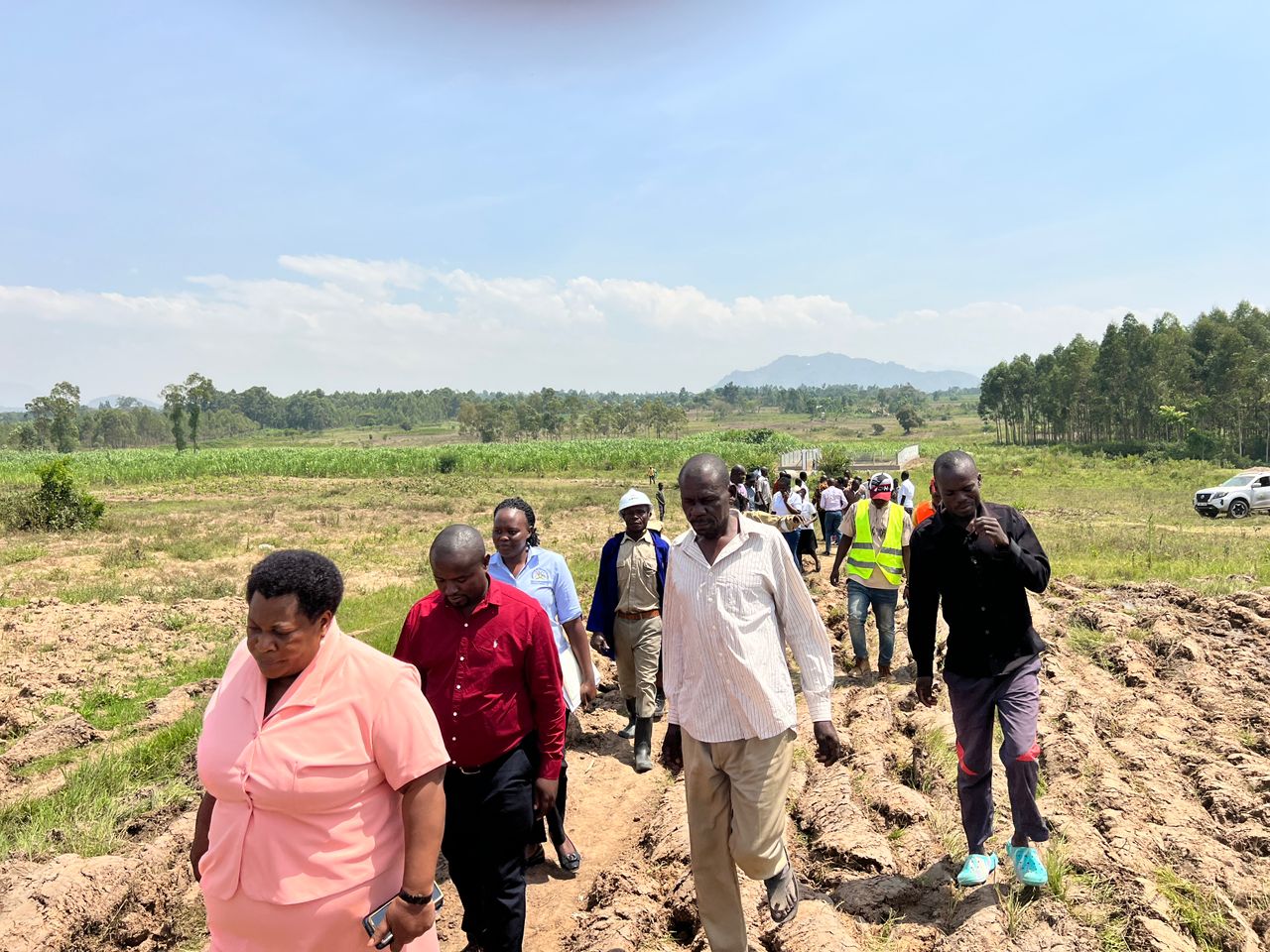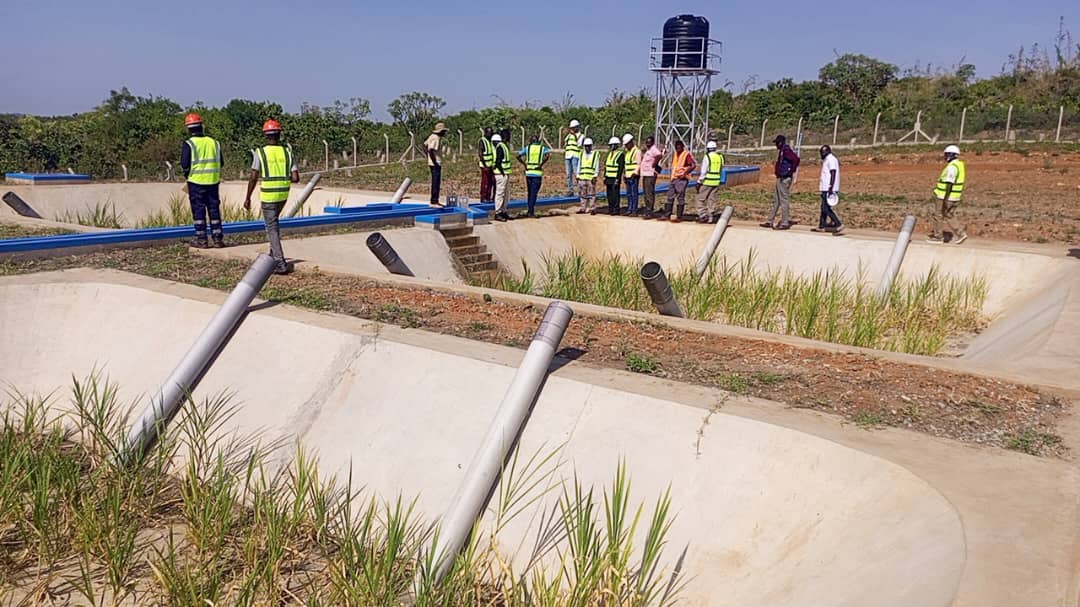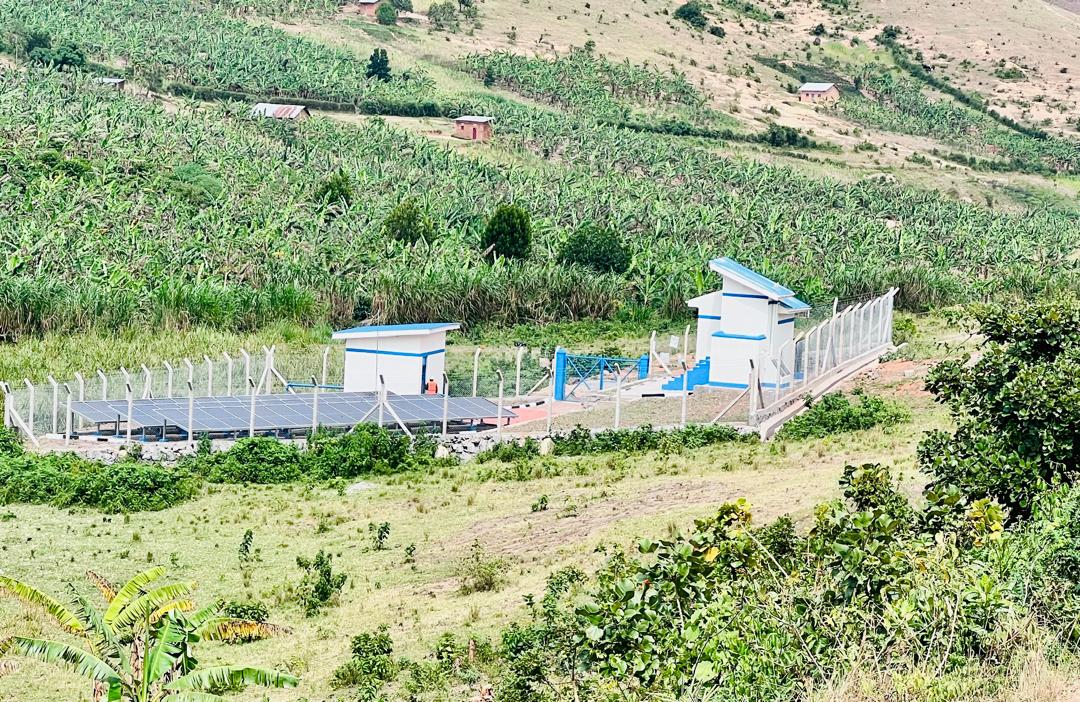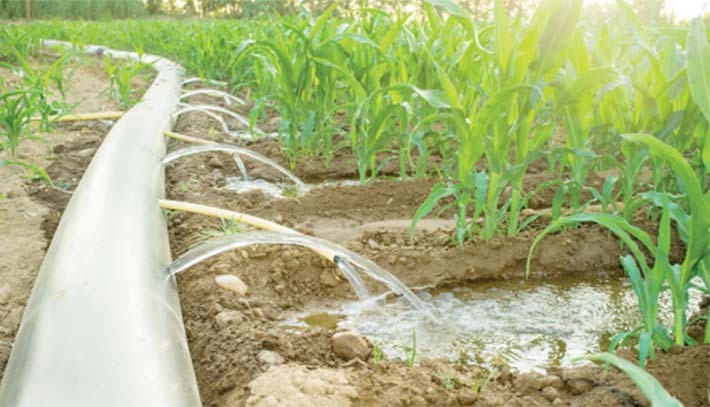
Ngora irrigation scheme excites communities.
Community members in the Ngora district are blossoming with a simile. The reason is
simple. They are now able to adapt to climate change impacts such as prolonged
drought, erratic rainfall, floods, and drug-resistant pests, all of which have been having
serious effects on their livelihoods.
Thanks to the Building Resilient Communities, Wetland Ecosystems, and Associated
Catchment in Uganda Project, the government is implementing through the Ministry of
Water and Environment, working with the Ministry of Agriculture, Animal Industry and
Fisheries, and the Uganda Meteorological Authority. The project seeks to increase
communities’ and wetland’s resilience to climate change.
In 2021, a wetland-wise use demonstration site was established at the periphery of Agu
wetland, sitting on a six-acre land, and is a host to a mini solar-powered irrigation
scheme and fish ponds. It is this intervention that is now responsible for the blossoming
smiles on the faces of the Ngora communities, especially women.
“The community is very happy about this project, especially the market women engaged
in selling high-value crops such as greens, eggplant, cabbage, onions, tomatoes, and
watermelon. Previously, these women would have to travel to Mbale district to purchase
these items., Now, with the project, they have found a one-stop centre for most of the
items they need to run their businesses. I can assure you the hustle is no more. Here
we produce throughout the year. Season in, season out. The women flock here to come
and buy,” Mr. Samuel Enyondu, a model farmer, said.
Enyodu previously earned his livelihood from the Agu wetland till the government asked
him and other community members to voluntarily vacate the wetland in return for
alternative livelihood options. Enyodu is particularly benefiting from a mini-irrigation
scheme. He grows high-value crops like watermelon, cowpeas, tomatoes, cabbages,
eggplants, and onions, all through the year.
Demarcated into 18 plots, the six-acre scheme is benefiting 10 households which is
approximately 70 community members. The scheme has since operated for 15 seasons
since it started. Each season, the farmers earn approximately shs 20m- 30m, implying
that for the last 15 seasons, former wetland users in Ngora have earned up to shs
300m- shs 450 m.
“This project has the potential to transform our communities and the country as a whole.
I have been able to change my livelihood. I can pay fees for my children at a private
school. We have a balanced diet, and we have been able to engage in several
developments geared towards kicking poverty out. I have bought animals, like cows and
goats, all from this project,” Enyodu adds.
Enyodu is not the only person who has benefited from the project. His wife, Aguti
Zipora, received 25 chickens. She reared the hens and was able to sell eggs. The
proceeds she used to support her husband to meet domestic needs like school fees,
nutrition, among others. She was able to sell some chicken and bought a pig. Once the
pig grew, she sold it and used the proceeds to boost her grocery business. “I left the
wetland, and I don’t regret it,” Aguti boastfully says.
Whereas the Enyodu are happy with the current level of benefit, they still believe that
they could earn more once the government undertakes close supervision to iron out
existing challenges, such as limited knowledge, operational hiccups, and security.
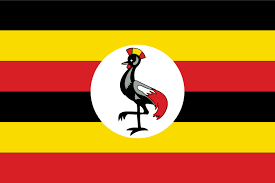 Official Website of the Ministry of Water and Environment
Official Website of the Ministry of Water and Environment

